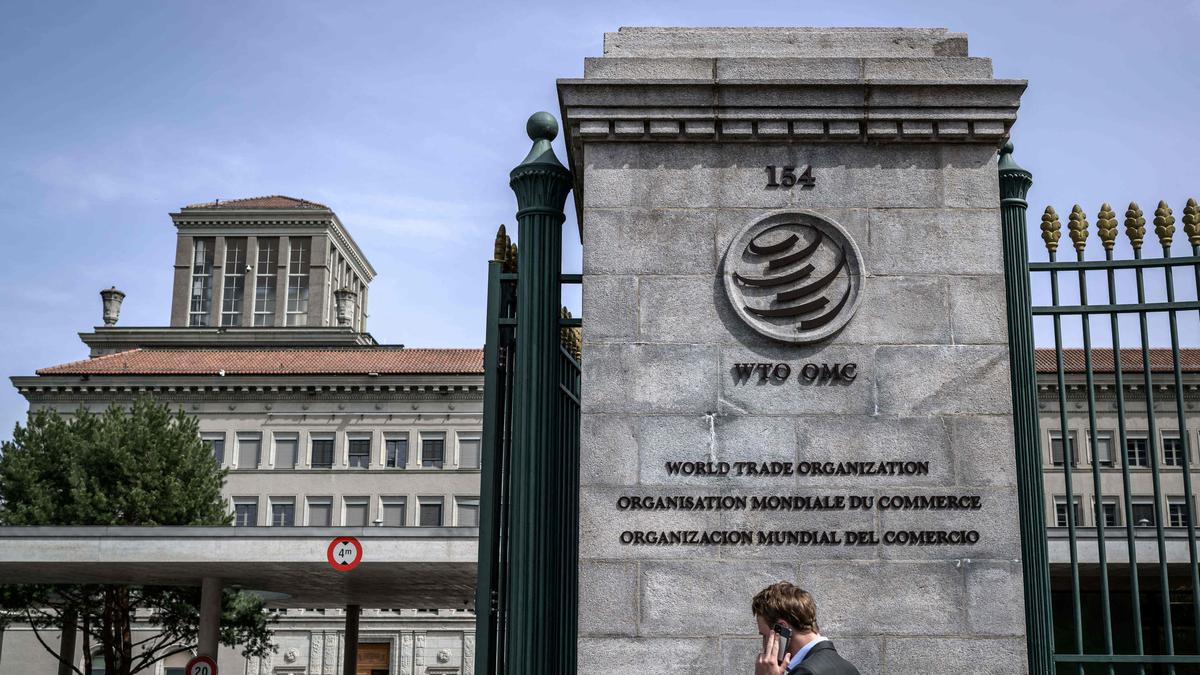In what may be seen as a strong validation of India’s long-standing concern related to potential challenges with unregulated digital trade, the United States has announced its decision on 25 October 2023 to withdraw support for select World Trade Organisation e-commerce proposals. While the move is seen by trade experts as a pivotal one, signalling Washington’s emphasis on national security over tech influences, global digital trade tensions are set to soar given the US’ dominant role in the global digital landscape, according to a GTRI report. The withdrawals, according to various sources, were made in Geneva during a meeting of the WTO’s joint statement initiative on e-commerce, with the US attributing the review of its approach, to trade rules in sensitive areas as data and source code.
Importantly, the new US stand on digital trade is well aligned with India’s approach on the subject, notes Ajay Srivastava, founder of the technology and trade research group GTRI. New Delhi had long ago foreseen potential challenges with unregulated digital trade and thus refrained from participating in the WTO e-commerce negotiations and has a conservative stand in free trade agreements (FTAs).
The change in the US stand on WTO e-commerce negotiations, however, is poised to spark a worldwide reassessment of national e-commerce policies, which could potentially reshape the future of digital trade agreements, suggests GTRI. The key issues will be ensuring ample “policy space” and revisiting national digital trade strategies. As a build-up to these dynamics of WTO e-commerce discussions, culminating in this move by the US administration, GTRI tracks the genesis of the negotiations to a 2019 exercise by 89 WTO members striving to reach a consensus on vital digital subjects. The contentious issues at stake involve data flows, data localization and protection of source code.
The precursor to these efforts was an agreement by a group of 71 WTO members at the 11th Ministerial Conference in December 2017 to initiate exploratory work towards future WTO negotiations on trade-related aspects of e-commerce. In 2019 January, 76 WTO members confirmed in a joint statement their intention to commence these negotiations. They agreed to “seek to achieve a high standard outcome that builds on existing WTO agreements and frameworks with the participation of as many WTO members as possible”.
This recent US stance, suggests GTRI, now marks a departure from the Trump administration’s 2019 endorsement, which pushed for free cross-border data transfers under WTO e-commerce regulations. While the US pledges continued active participation in the WTO e-commerce discussions, this recent decision might complicate reaching consensus on pivotal issues and result in mostly best endeavour type agreement. Srivastava believes the US decision may have been influenced by three issues. Chief among these are data sovereignty concerns which stem from the fear that other nations could exploit WTO rules to compel US firms to localise data or reveal their source code, risking sensitive data exposure and potentially jeopardizing national security.
There is also the worry about an impact on innovation. “There are concerns that restrictive WTO rules might stymie digital sector innovations. Forcing companies to localize data might deter them from launching new, ground-breaking products or services,” says Srivastava.
The third driver is a desire for flexibility on the part of the Biden Government which wishes to devise its digital trade policies independently without WTO constraints, especially considering the digital sector’s swift evolution.
The perspicacity of policymakers vis-à-vis the risks of unregulated digital trade has aptly led to India refraining from participating in WTO e-commerce negotiations with America’s current apprehensions finding resonance in the primary reasons for India’s abstention. Worry over data protection and ownership is predominantly keeping India away from joining WTO negotiations on e-commerce, suggests the GTRI report. With these areas lacking a thorough law on data protection, India fears that new rules might favour foreign companies, potentially enforcing market access.
The impact on domestic industry is another concern, according to Srivastava, arising from the potential dominance of a handful of e-commerce players, which could adversely affect the local industry, particularly micro, small, and medium enterprises (MSMEs). The third trigger is a desirable policy space for India which aligns well with its stance in FTAs—including the IPEF—on digital trade, leaning towards retaining control over its data. With China and India being major data generators and China already safeguarding its data, India would rather maintain flexibility in data-sharing with domestic companies than international tech giants. There are also reservations about adopting US standards on artificial intelligence and concerns about potential biases in such standards.
Srivastava draws attention to India maintaining distance from the IPEF trade pillar which includes taking onerous commitments on digital trade. “India should never agree to binding commitments on free cross-border data flows as it will lock in the future,” asserts the GTRI founder. “Much the same way, the Information Technology Agreement (ITA) 1 agreement locked us out of electronic hardware manufacturing,” reminds Srivastava. Going ahead, the GTRI recommends continuing with the flexibility to share data with Indian firms and not BigTech to promote indigenous enterprise. The report also favours India’s non-agreement to “no tax on services offered online”. “Else, how will governments earn revenue as most services are shifting online? Do not adopt the US standards on artificial intelligence. Drawn by a few tech giants, these may have biases built in. It may not suit local jurisdictions,” suggests Srivastava.
As for the future roadmap, while the digital realm continues to evolve and nations reevaluate their stances on e-commerce and digital trade policies, the GTRI report supports India’s focus on policy that gives most space for development without constraints to progress. The US decision is a testament to the shifting dynamics and the growing importance of national security and data sovereignty in the digital age.
India’s concerns validated as US withdraws support for some WTO e-commerce proposals
- Advertisement -

